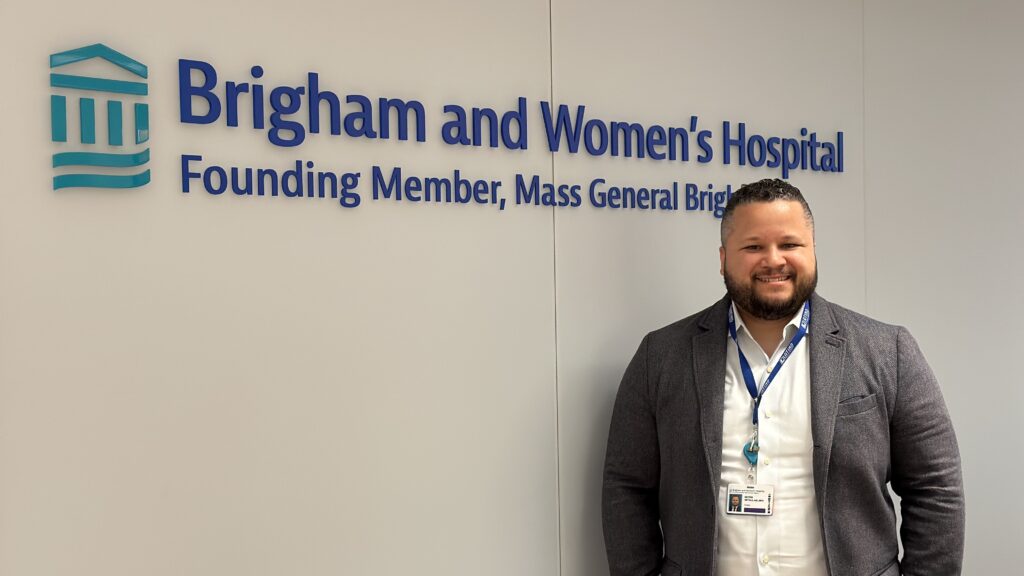BOSTON—Born to Dominican immigrant parents in a low-income neighborhood in Brooklyn, Gezzer Ortega never thought he would be working with some of the top researchers and healthcare professionals in the country.
But now, working as a professor at Harvard Medical School and paving the way in research and innovation for equitable surgical care at Brigham and Women’s Hospital is all Ortega can imagine himself doing.
“In my little Brooklyn community, we just did every day whatever we could to survive and that was it,” Ortega said.
A “hustler mentality” paired with an insatiable desire to create a community for other Latinos in the medical field allowed Ortega to achieve what very few have been able to do.
In 2015, Ortega found himself on a call with two other Latino surgeons, which was extremely rare.
“We were like, oh wow … we’re responsible for surgical care in this hospital and it’s three Latinos,” Ortega said. “We were like, when has this ever happened in the history of the U.S.?”
What was supposed to be just another shift at the hospital turned out to be the start of a massive effort to create a community for other Latino surgeons across the country. Two years later, Ortega and a few other surgeons founded the Latino Surgical Society, which helps underrepresented minorities achieve higher levels of success in surgery.
“Gezzer and I are certainly both passionate about health equity and working towards that, particularly in surgery,” said Brittany Dacier, a surgical resident and research fellow for Ortega.
Driven by his own family’s struggles to receive proper health care due to language barriers, Ortega now focuses his work on addressing issues in medical care that patients with limited English proficiency commonly face.
“We have a challenge here,” Ortega said. “What are ways in which we can provide resources for patients who are not English speakers so that they can have better encounters with our healthcare system?”
To answer that question, Ortega is working closely with a team of healthcare professionals and engineers at Harvard’s Healthcare Transformation Lab to create a user-friendly translation tool that bridges the gap between medical professionals and non-English-speaking patients.
The language barrier not only negatively affects doctor-patient communication but can also play a huge role in creating errors in medical histories, treatment plans, and medication instructions, Dacier said.
About 30% of Hispanic Americans have said that healthcare providers are less likely to give them advanced medical care and generally rank Hispanic people as lower priority, according to a survey conducted by the Pew Research Center.
David Zapata, a Spanish-speaking resident of Boston, recalls his experience seeking medical attention ahead of his surgery in which he found that he “couldn’t really explain [to doctors] what happened.”
A survey conducted by the Kaiser Family Foundation found that around 50% of Hispanic adults have experienced a discriminatory experience that has impacted their health and well-being.
Many healthcare workers lack the level of patience it takes to speak to someone who can’t speak English, Zapata said.
Although recent advancements have made way for translation services like interpreters, many patients still find it hard to facilitate real-time, accurate communication in dire situations like Zapata’s.
“Sometimes the interpreters don’t translate exactly what we want to explain,” he said.
Ultimately, Ortega aims to implement solutions uniformly across the healthcare landscape, allowing for smaller clinics and community health centers that lack funding to provide the quality of care they deserve through the adoption of advanced translation technologies.
The goal, he explained, is to create a better experience for non-English speaking patients on a national level and continue to reshape the way America addresses Latino health.
As the dialogue surrounding language barriers in healthcare gains momentum and health disparities continue to persist, Ortega said he is striving to support a new generation of Latino surgeons and healthcare professionals that will foster a world where inclusive and equitable healthcare is available for all.
“Technology has the potential to really make a big difference in reducing some of the disparities we see,” Ortega said. “Not just the community here, not just Boston, not just Massachusetts, but the entire country.”
This report was published in collaboration with the Boston University School of Communications School of Journalism. The journalism student is a member of a Reporting in Depth class taught by former Boston Globe reporter Meghan Irons.
Aniya Sumner is a student journalist at Boston University, concentrating in sports journalism and advertising. Sumner also writes for WTBU Sports, a student-run sports sector of the school’s radio station, you can find more of her written work here: https://sites.bu.edu/wtbu/author/ansumner/ .




